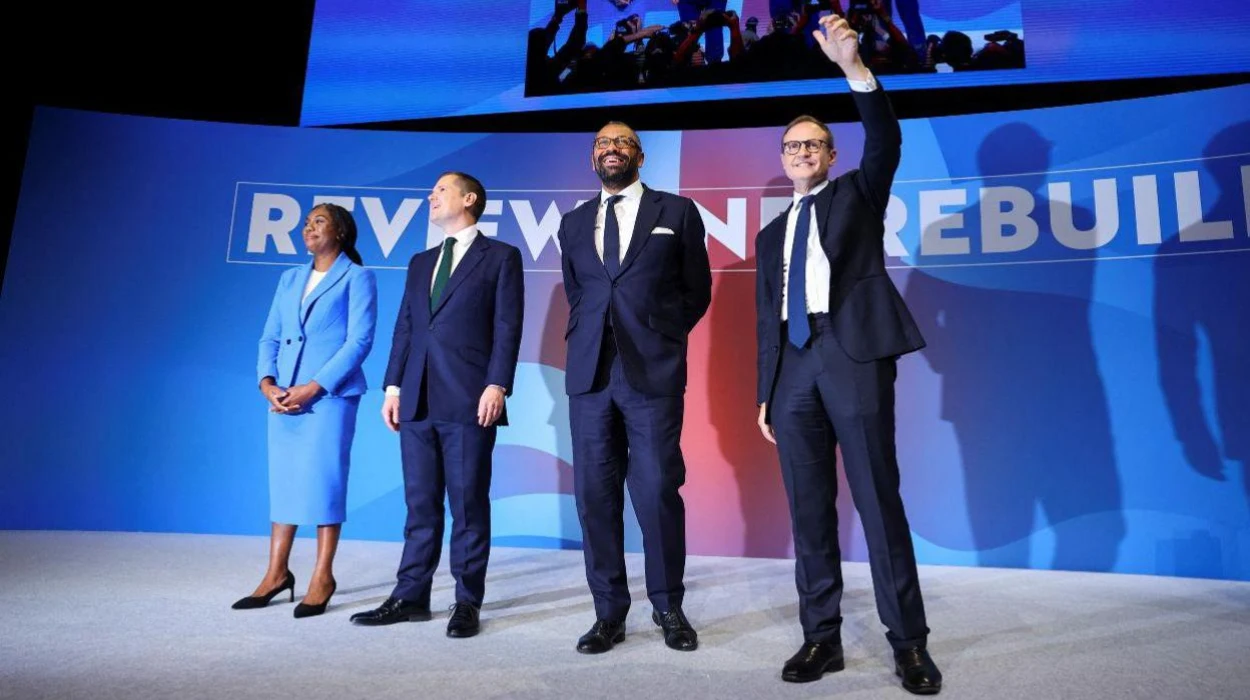London, (Parliament Politics Magazine) – By any reckoning the Conservative Party leadership contest has been heated, bad tempered and I believe damaging for the contenders wanting to succeed Boris Johnson.
It started almost immediately after the PM announced he was going, front runner candidates, were subjected to anonymous briefings about their past, wealth, tax affairs, “wokeness”, former employment even their military records.
The most briefed against has been the trade minister, Penny Mordaunt who emerged as the favourite candidate among party members and Conservative voters. The Portsmouth North MP has been subjected to a series of hostile and personal stories, even questioning her service in the Royal Naval Reserves, yet at the time of writing this article she had secured a place in the final three.
She was not alone mind you; the former chancellor had the fact his wife was a nom-dom for tax purposes and the ownership of a US Visa, or green card raised on a number of occasions, aimed to portray him as out of touch with ordinary people and not really committed to staying in the UK.
These briefings have not been successful in dealing a decisive blow against anyone contender and have provided the Labour Party with buckets of ammunition for the next General Election.
But its more than just giving a few good clips and soundbites to your opponents that should worry the next leader of the Conservative Party. A leadership contest can be many things, a beauty pageant of the most charismatic or telegenic, a battle of ideas or vision for the country, a changing of generations, or it can be nasty, venial and deeply damaging.
I am afraid that the Conservative Party leadership contest has fallen into this latter category.
The problem with this is not unlike the brutal removal of Margaret Thatcher, it injects a poison into the arm of that Party that can take years to get rid of and usually requires a long period in opposition.
We saw this in the lates 1990s and throughout much of the 2000s with the Conservative Party being hopelessly split on Europe and the economy. Compare and contrast the success of the Conservative Party with that of what appeared to be a united Labour Party. It was only with the election of David Cameron as Conservative Leader and the fracturing of the unity at the top of the Labour Party that reversed the political tide.
No wonder 56 years ago, former President Ronald Reagan, during his 1966 campaign to become the Californian Governor, issued what became known as the Eleventh Commandment, “Thou shalt not speak ill of any fellow Republican”.
Yes it was a brilliant piece of rhetoric to the party faithful who prized unity, but it was more than that. It was the simple realisation that divided parties never prosper.
When political parties are fractured and inward looking, they forget about the job of governing as they become consumed by petty squabbles and personality politics. Policies and discipline go and ultimately the public have to boot them out.
Accordingly Conservative strategists should be very worried about what they have seen so far. The nastiness of this leadership election has been far worse and far more personal than any campaign I can remember.
The use of anonymous briefings and dredging up the past of the candidates sometimes from decades ago, even the use of innuendo and suggestion before the candidates entered politics should set alarm bells ringing in CCHQ. These were not briefings from the Labour Party, but an orgy of Blue on Blue bloodletting.
It should also concern the 160,000 Conservative Party members who this month will cast their ballot on which of the final two candidates they want to take over as the leader of their Party and ultimately the Prime Minister of our Country.
They will need to answer if either of the final two candidates can unite a Party that seems ready to tear itself apart.
But given the vitriol displayed in the first couple of weeks of the campaign whoever takes over will have a torrid time trying to pick a Government that will be able to appeal to all sides of the Conservative Party and if they can’t do that, how on earth will they be able govern effectively?
ENDS


